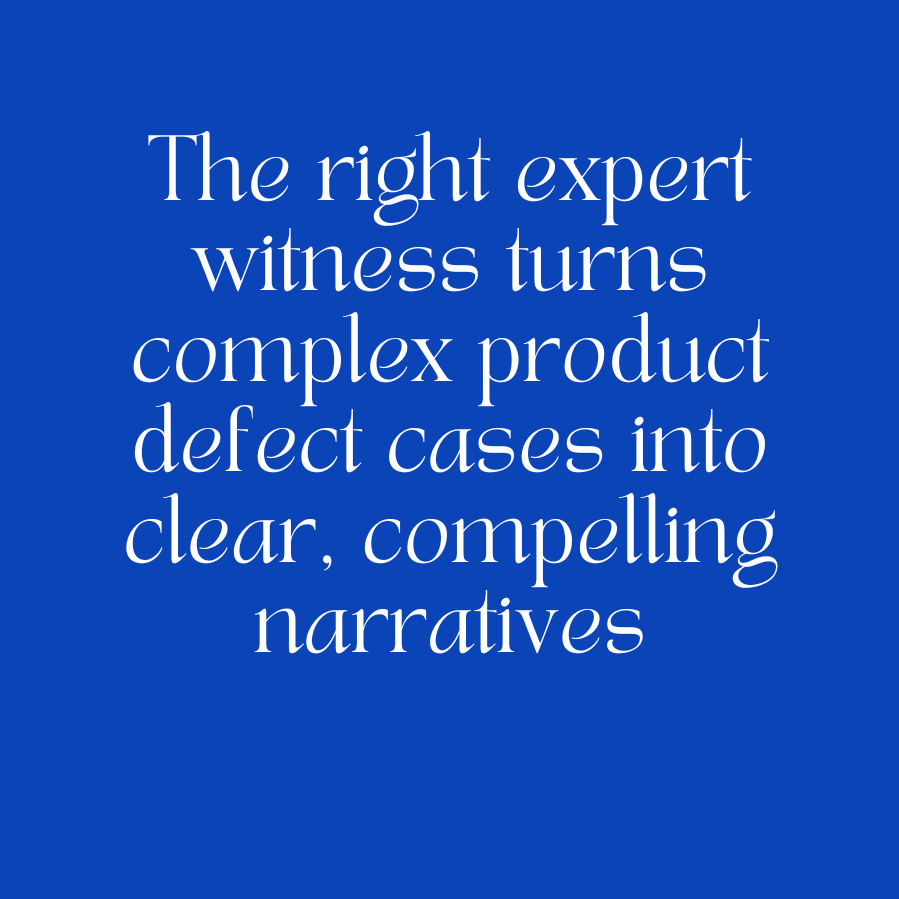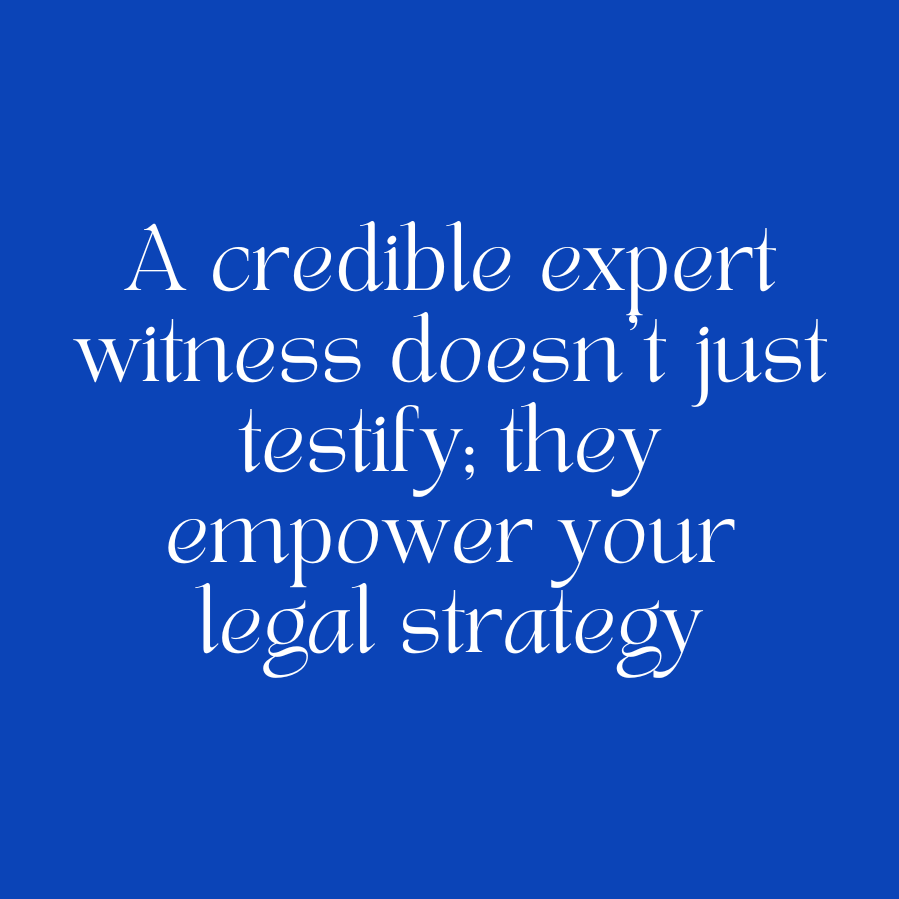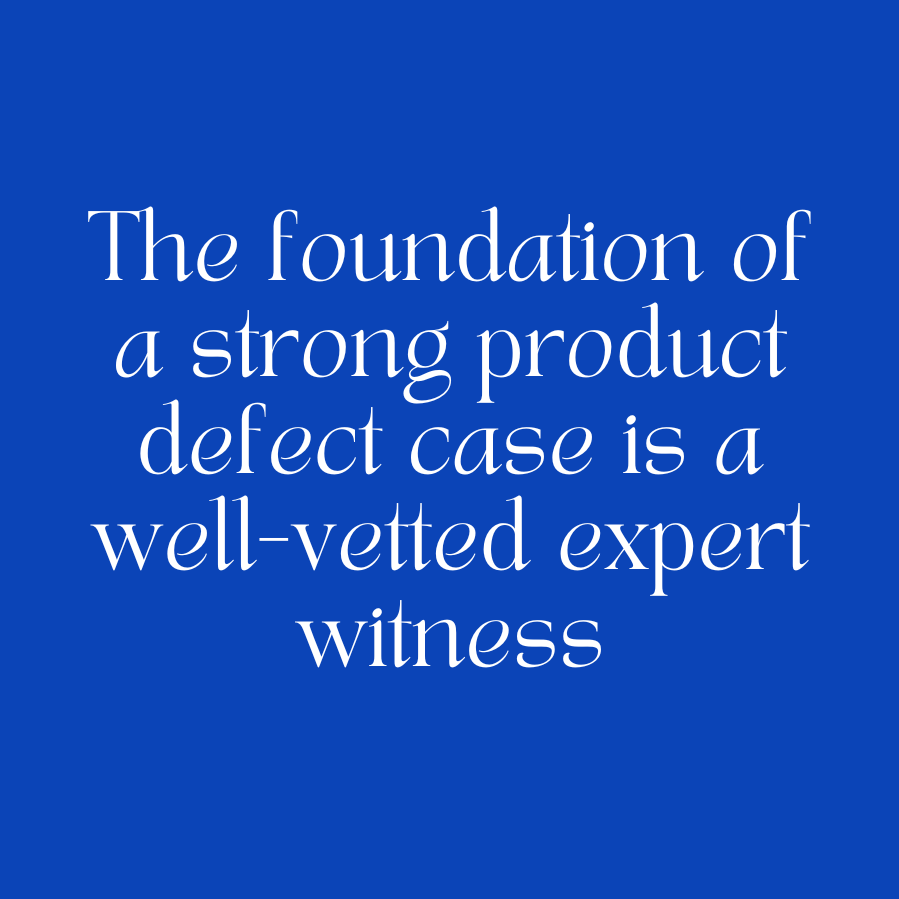The Best Expert Witness for Product Defect Cases
You’ve been there before—the moment when your case hinges on finding the perfect expert witness. As a litigator tackling product defect cases, you know the challenges of building a rock-solid argument. Your client’s trust and the court’s confidence rest on your ability to present credible, persuasive testimony. But how do you ensure the expert you choose can stand up to cross-examination and communicate complex technical details effectively? Let’s explore the strategies that can help you secure the best expert witness for product defect cases and avoid costly pitfalls.
Why Expert Witnesses Matter in Product Defect Cases
In product defect litigation, the stakes are high. These cases often involve intricate technical details, such as engineering design flaws, manufacturing errors, or failures to meet safety standards. An expert witness serves as the bridge between these complexities and the judge or jury, providing clarity and authority.

Without a qualified expert, you risk having your arguments dismissed due to a lack of credibility or relevance.
For example, in a recent product liability case involving consumer electronics, an expert in electrical engineering was instrumental in breaking down why a manufacturing flaw led to overheating. The clarity and precision of their testimony ultimately swayed the jury in favor of the plaintiff, highlighting the critical role of an expert witness in product defect cases.
Key Qualities to Look for in an Expert Witness
Choosing the right expert witness involves more than reviewing resumes. Here’s what to prioritize:
Relevant Technical Expertise
Your expert must have hands-on knowledge of the specific product or industry in question. A general engineering expert may fall short if your case involves nuanced design flaws in a specific type of machinery. Look for credentials like:
Advanced degrees in the relevant field.

Publications or research in product design or safety.
Direct industry experience with the type of product in question.
Strong Communication Skills
Technical knowledge alone isn’t enough. The best expert witnesses can translate complex concepts into language that’s accessible to a lay audience. Look for someone who:
Explains technical terms without jargon.
Uses relatable analogies to clarify complex points.
Can remain composed and persuasive under cross-examination.
Litigation Experience
An expert who has never testified before may not be prepared for the pressures of the courtroom. Prior experience helps ensure they:
Understand legal standards for admissibility.
Stay consistent during depositions and cross-examinations.
Can provide detailed and defensible reports.
Steps to Finding the Best Expert Witness
To identify the right expert witness, follow these steps:
1. Define the Scope of Expertise Needed
Clarify the technical aspects of your case.

For example:
If the case involves a design flaw, you’ll need a product engineer with experience in design standards.
For a manufacturing defect, a materials scientist may be more appropriate.
2. Leverage Expert Witness Networks
Using a professional expert witness network, like ExpertConnect Litigation Support, can save time and ensure quality. A network like ExpertConnect Litigation Support screens experts thoroughly, providing you with pre-screened candidates who have relevant experience and proven courtroom effectiveness.
3. Conduct Rigorous Vetting
Review potential candidates’ credentials, past testimony, and publication history. Pay special attention to:
Consistency in prior cases.
Alignment with the technical needs of your case.
Their ability to meet deadlines for depositions and report submissions.
4. Interview Prospective Experts
A face-to-face interview or video call is crucial to assess communication skills and demeanor. During the interview:
Ask them to explain a complex concept related to your case.
Gauge their ability to handle tough questions without becoming defensive.
5. Evaluate Their Methodology
Ensure the expert employs reliable, industry-standard methodologies for analysis. Courts often apply the Daubert standard to assess the admissibility of expert testimony. Your expert must:
Base opinions on scientifically valid methods.
Provide transparent documentation of their processes.
Avoiding Common Pitfalls in Expert Witness Selection
Even seasoned litigators can make mistakes when selecting expert witnesses. Avoid these common missteps:
Overlooking Industry-Specific Knowledge
Choosing a generalist instead of a specialist can backfire. For instance, an expert in general materials science may lack the depth needed to analyze failures in high-tech aerospace components.
Underestimating the Importance of Demeanor
An expert who appears overly aggressive or evasive under cross-examination can damage your case. Look for someone who projects confidence and professionalism without arrogance.
Failing to Verify Conflicts of Interest
Ensure your expert hasn’t worked for the opposing party or has other conflicts that could undermine their credibility.
The Role of Expert Witness Services
Using expert witness services can streamline the expert selection process. These services offer:
Access to Pre-Vetted Experts: Save time by choosing from a curated list of professionals with proven track records.
Detailed Profiles: View experts’ credentials, litigation experience, and areas of specialization.
Support Throughout the Case: From initial selection to trial preparation, litigation support services provide invaluable assistance.
Case Study: The Impact of the Right Expert Witness
In one product defect case involving a malfunctioning medical device, the plaintiff’s attorney secured a biomedical engineer with extensive experience in medical device testing. The expert’s detailed analysis of the device’s failure mechanism and their clear communication during testimony were pivotal in achieving a favorable outcome.
This case illustrates how the right expert witness can simplify complex technical arguments and build credibility with the court.
Conclusion: Ensuring Success with the Right Expert Witness
Selecting the best expert witness for a product defect case requires careful planning, rigorous screening, and an understanding of the technical demands of your case. By focusing on relevant expertise, communication skills, and litigation experience, you can ensure your expert witness strengthens your argument rather than becoming a liability.
For attorneys seeking to streamline the expert selection process, ExpertConnect Litigation Support offers a network of pre-screened professionals with proven courtroom success. By leveraging the perfectly aligned expertise of your expert witness for your product defect case, you can focus on building a compelling case and delivering the best outcomes for your clients with the right expert witness for product defects.